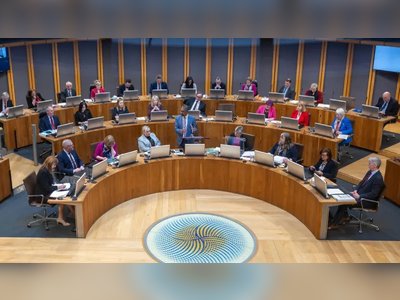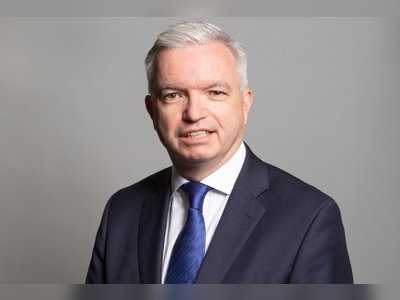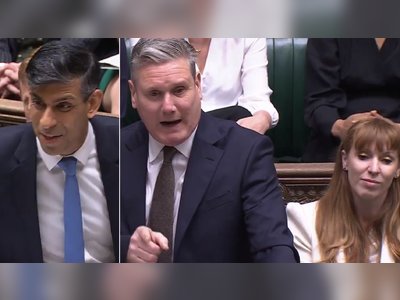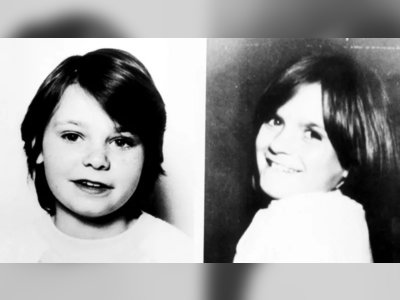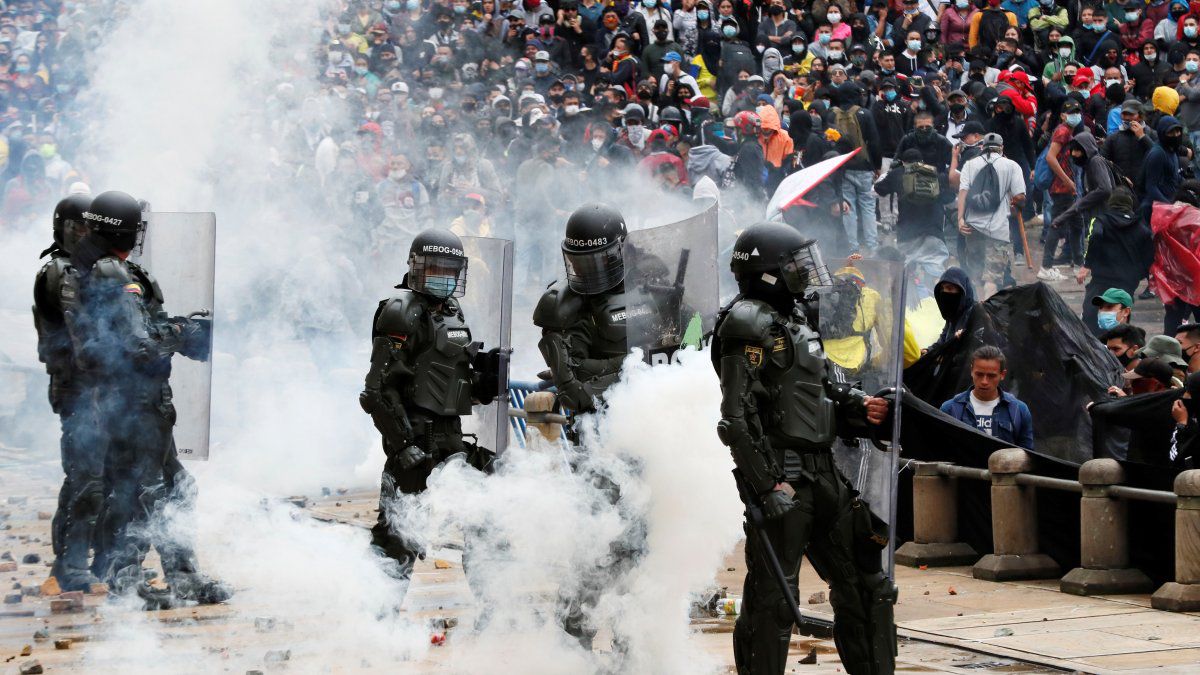
Colombia: Iván Duque will not withdraw the tax reform, despite massive protests
Iván Duque argued that the tax reform is open to modifications and "to consensus within the framework of the institutions" and with the parties in Congress.
The president of Colombia, Iván Duque, reaffirmed this Thursday his willingness to approve a tax reform and refused to withdraw it from his debate in Congress, despite the fact that on Wednesday tens of thousands of people took to the streets throughout the country opposing for this law to be approved, protests that continue today.
"Talking about a withdrawal, when there is the possibility of total modification in Congress, would be a message that at this time could generate not only great financial and economic uncertainty but also has negative effects for the entire Colombian society," said the president Iván Duque, in an interview with Double W radio this Thursday morning.
Iván Duque argued that the reform is open to modifications and "to consensus within the framework of the institutions" and with the parties in Congress, in addition to accepting proposals from the private sector.
However, he did not refer to possible meetings with unions and social organizations, which were the ones who called the "national strike" that took crowds in a generally peaceful way to the streets to demand that a reform not be approved that they consider will mainly affect the the lower and middle class.
"What we have sought is to open a democratic, deliberative, constructive discussion within the institutions," insisted President Iván Duque.
The Government alleges that it needs to close the gap that the pandemic has created in the State coffers, and with the tax reform it expects to collect 25 trillion pesos (about $6.85 billion).
The rise in taxes on basic products of the family basket or the progressive increase in income tax on those who earn 2.4 million pesos a month (about 660 dollars) can affect the middle and lower classes, which have been the hardest hit economically due to the pandemic.
WAVE OF OPPOSITION
With the "No to the tax reform" impregnated in chants, banners, T-shirts and posters, Colombians mobilized in the main cities claiming that the reform promoted by the Duque government is "hunger and misery for the people."
The demonstrations took place peacefully in most of the country, but ended with altercations and clashes with the Police towards the end of the day, especially in the city of Cali, where the highest number of incidents was recorded since early in the morning. .
At least one person was killed in Cali, presumably by the shooting of a motorized police officer, according to videos recorded on social networks and confirmed by the mayor of this city, Jorge Iván Ospina, who spoke of a dead person "in unclear facts related to the manifestation".
Another young man died in Neiva, capital of the Huila department, of an alleged epileptic seizure, while participating in the demonstration.
In addition, the Government reported that 44 police officers were injured, without providing figures for injuries to the civilian population, although social organizations speak of fifty victims of police violence.
The protests against the tax reform continue this Thursday, after the call of unions and organizers, although with a notable less attendance and follow-up.
"Talking about a withdrawal, when there is the possibility of total modification in Congress, would be a message that at this time could generate not only great financial and economic uncertainty but also has negative effects for the entire Colombian society," said the president Iván Duque, in an interview with Double W radio this Thursday morning.
Iván Duque argued that the reform is open to modifications and "to consensus within the framework of the institutions" and with the parties in Congress, in addition to accepting proposals from the private sector.
However, he did not refer to possible meetings with unions and social organizations, which were the ones who called the "national strike" that took crowds in a generally peaceful way to the streets to demand that a reform not be approved that they consider will mainly affect the the lower and middle class.
"What we have sought is to open a democratic, deliberative, constructive discussion within the institutions," insisted President Iván Duque.
The Government alleges that it needs to close the gap that the pandemic has created in the State coffers, and with the tax reform it expects to collect 25 trillion pesos (about $6.85 billion).
The rise in taxes on basic products of the family basket or the progressive increase in income tax on those who earn 2.4 million pesos a month (about 660 dollars) can affect the middle and lower classes, which have been the hardest hit economically due to the pandemic.
WAVE OF OPPOSITION
With the "No to the tax reform" impregnated in chants, banners, T-shirts and posters, Colombians mobilized in the main cities claiming that the reform promoted by the Duque government is "hunger and misery for the people."
The demonstrations took place peacefully in most of the country, but ended with altercations and clashes with the Police towards the end of the day, especially in the city of Cali, where the highest number of incidents was recorded since early in the morning. .
At least one person was killed in Cali, presumably by the shooting of a motorized police officer, according to videos recorded on social networks and confirmed by the mayor of this city, Jorge Iván Ospina, who spoke of a dead person "in unclear facts related to the manifestation".
Another young man died in Neiva, capital of the Huila department, of an alleged epileptic seizure, while participating in the demonstration.
In addition, the Government reported that 44 police officers were injured, without providing figures for injuries to the civilian population, although social organizations speak of fifty victims of police violence.
The protests against the tax reform continue this Thursday, after the call of unions and organizers, although with a notable less attendance and follow-up.
